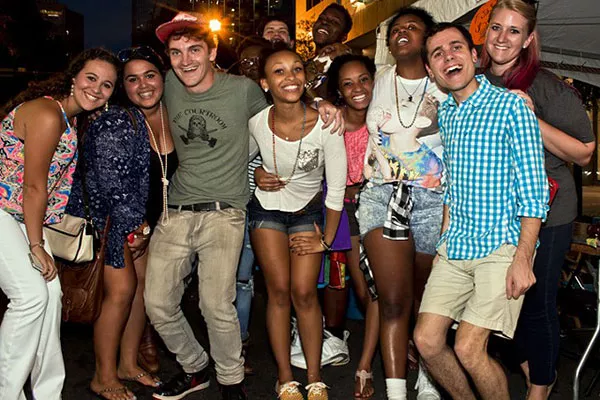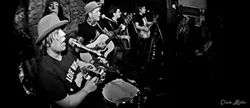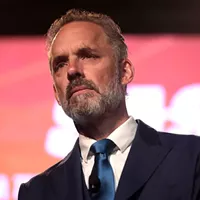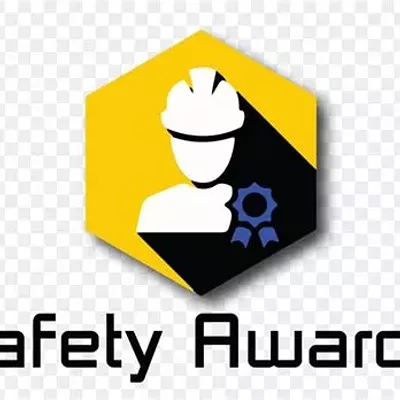Charlotte Pride and Trans and Queer People of Color Collective clash on Pride Week priorities
Disagreements over representation, policing in lead-up to Pride
By Ryan Pitkin @pitkin_ryanIt's safe to say that Pride Week and the weeks leading up to it are the busiest time of year for the folks at Charlotte Pride, but reservations about Pride Week programming from some within the LGBT community have brought some unwanted headaches to 2016 organizers.
Troubles began in the months leading up to Pride Week, as organizers with Charlotte Pride began meeting with representatives of Trans and Queer People of Color Collective (TQPoCC), among other groups and organizations, to inquire about making the more marginalized subgroups in the LGBT community, such as trans people of color, feel safe at Pride Week.
The talks did not go well, leading to complaints from TQPoCC that their concerns were not being seriously considered.
Later, in August, potential performer Lara Americo took to social media to call out Charlotte Pride for what she called a tokenization of trans performers on the main stage at Pride Week. Her posts garnered support from multiple leaders in Charlotte's LGBT community, some of whom made similar claims about their past experiences with Charlotte Pride.
Full disclosure: Lara Americo and Matt Comer, who serves on the Charlotte Pride board and whom Americo specifically addressed in multiple Facebook posts about her experience auditioning for Pride Week, are both contributors to Creative Loafing's news section. As news editor, I have a good working relationship with both.
My purpose in reporting this story was to look at how communication between Charlotte Pride, TQPoCC and Americo broke down, regardless of my professional relationship with any involved parties. I also wanted to give Charlotte Pride a chance to explain their side of the story, as their social media silence has not helped in the eyes of some in the LGBT community who wanted answers to Americo's claims.
After speaking with Americo and Ashley Williams of QTPoCC about their experiences and reading over correspondence between each of them and Charlotte Pride representatives, I wrote a list of questions for any representative of Charlotte Pride to answer that would address the concerns, as was suggested to me by Charlotte Pride. After reading over the questions, Charlotte Pride declined to comment for this story.
Americo, a transgender woman of color, first became concerned with the process of picking performers for Pride Week after she auditioned and was called back on stage for an encore. She said the only other band or performer to be called back up was Lovesucker. Americo was later told she would be performing in the VIP tent, as opposed to the main stage, where Lovesucker will perform.
At the time, the full list of performers had not been released, and Americo began questioning the lack of representation of trans people of color on the main stage.
"I was trying to figure out why I wasn't put on the main stage after the audition," Americo said. "It's cool if they didn't want me, they didn't like my song or style, but my question was, 'What trans or queer people of color were going to be on the main stage representing the community?'
In an email, Americo voiced her concern that trans people of color were being pushed to the VIP stage where donors would see them and get a feeling of diversity.
"Diverse doesn't mean booking cis[gender] people for the main stage and putting trans and queer people in the back," Americo wrote in an email. "It also doesn't mean having serious performers such as singer/songwriters and bands that are exclusively cis and only having trans performers that are exotic dancers and cross dressers."
She was told that the decision was made based on the belief that her musical style was better suited for a more intimate environment, such as the VIP tent.
When the final schedule for the main stage was released, cisgender performers like K. Michele and Eden xo took some spots, joined by acts that include genderqueer musicians like the Charlotte-based Dust to Ashes.
When Williams looked at the schedule, they immediately noticed that the only trans people of color scheduled to perform on stage — save for the potential those included in youth and community entertainment early on Saturday — would do so in drag.
"That is a huge problem for us," said Williams.
Williams soon reached out to Americo in an effort to involve her in QTPoCC's efforts to push Charlotte Pride to be more inclusive to trans people of color.
Williams' efforts began in July, when they met with representatives of Charlotte Pride and gave them their ideas on how to make Pride Week inviting and safe for trans people of color.
At the original meeting, Williams emphasized the importance of limiting police activity within Pride Week. They first suggested that no police be present, then that police be unarmed, then that police not be allowed to declare Pride Week an "extraordinary event," which would have officers showing up in larger numbers and using surveillance technology.
In an atmosphere where public safety concerns play a large role, especially in the wake of the June shooting in Orlando in which LGBT people were targeted and 49 people lost their lives, each of Williams' suggestions was turned down as unrealistic. Talks between Charlotte Pride and TQPoCC began to break down. When Williams suggested that Charlotte Pride not pay the bill for the extra costs involved with an extraordinary event, things reached a breaking point.
"I say, 'Oh, that's easy, you ain't gonna pay them.' [Charlotte Pride representatives were] like, 'That's offensive to us. We've been working for 10 years to build this,'" Williams recalls of the ensuing discussions. "I told them that I didn't give a damn about Pride not happening next year, because Pride never included trans and queer people of color, so I don't care about their Pride. Furthermore, if you're asking me what to do, I'm telling you. They said, 'We will express these concerns when we meet with the police again, but we just don't buy it, we don't think it's going to work out.'"
In the midst of these discussions, Williams was suddenly informed that they would be awarded the Young Catalyst Award at Pride Week for their work as a community organizer. Williams felt as if Charlotte Pride was attempting to placate them after they threatened to protest Pride itself. Comer assured them that the decision had been made before they even began discussions, but Williams remained skeptical. They were dubious of being recognized for working with Black Lives Matter.
"What's interesting is they're giving me an award for stuff that they're not supporting when I do it; when I hold police accountable," Williams said.
Williams reluctantly accepted the award after discussing the issue with TQPoCC and deciding that if they didn't take the award "they're just going to give it to a white person who hasn't really done any work."
She then resumed talks between TQPoCC and Charlotte Pride. In the end, Williams and the rest of QTPoCC decided they would "turn down" for Pride Week, remaining on site to inform instead of protest. Williams was given seven minutes of stage time on the main stage to speak, but was upset to find out they're scheduled for 12:30 on Saturday, just after the opening ceremony, when not a lot of people will be there. Charlotte Pride will also provide QTPoCC with a booth, T-shirts and lunch.
Discussions between the two groups nearly broke down a second time when, as a condition of the above-mentioned agreement, TQPoCC representatives were asked to sign a statement announcing a new partnership between the two groups and speaking positively of both groups' relationship with police. The statement was never signed.
"The statement was all bullshit," Williams said. "It basically says that Pride is working actively with TQPoCC, working in a partnership, using these buzzwords. We're not in a partnership. This is not the beginning of a relationship, this is something else."
That "something else" looks like the beginning of a very different relationship, one in which TQPoCC plays watchdog to the bigger, more mainstream LGBT organizations.
"We want to start being able to hold these LGBT organizations accountable, like Human Rights Campaign (HRC), like Equality NC (ENC); we've had longstanding issues with them. But we realized that our issues with HRC and ENC are not separate from Pride," Williams said. "We feel like the white, gay establishment has taken a lot of our energy and resources — especially with House Bill 2 — so we are trying to get our shit together and be able to build a long-standing resistance to the white gay establishment."
As for Americo, she said she stopped receiving answers to her calls and emails in the days leading up to Pride Week. She was scheduled to perform at an event on Monday night hosted by Charlotte Trans Pride (CTP), Charlotte Pride's transgender community outreach project.
The event, a keynote panel discussion titled HB2: A Transgender Perspective, was one of multiple trans-centered events scheduled for Pride Week.
At the event, Americo refused to perform because of the "negative environment." She agreed to introduce the keynote speaker instead.
"I still support them even though I don't agree with the board that controls them," Americo said of Charlotte Pride on Tuesday.
Americo said she would like to see those involved with CTP separate themselves as an organization from Charlotte Pride. Some in the trans community believe CTP represents a divisive segregation between communities that should be working together.
"The whole point of us being a community is to kind of do it all together," said Paige Dula.
Dula, the founder of local transgender support group Genderlines, has worked with Charlotte Pride to plan trans-centered events during Pride Week in years past. She showed support for Americo following her Facebook posts, recalling similar communication problems with Charlotte Pride boardmembers.
"It's OK to have a TransPride committee or something like that, to ensure the trans issues are addressed, but doing something separate, I didn't really like the idea," Dula said.
Another person who jumped to Americo's defense following her Facebook posts was Gary Carpenter, a former Charlotte Pride boardmember who resigned his post earlier this year. He believes subgroups like Trans Pride and Latin Pride are being used as marketing tools.
"It seems to me like it's more of a marketing thing than anything, the way that they're intentionally separating and promoting these separate groups in order to say, 'Oh well, we have this and this and this,' instead of combining it all together and working toward one common cause; it's being segregated essentially."
For Carpenter, it's indicative of a larger problem with communication at Charlotte Pride that can lead to a feeling of alienation within the trans community and hurts the chances for them to be truly diverse and inclusive.
"It's always been like, 'Well, we're open and inclusive to anybody,' but as far as doing a direct push and inviting people to join, there wasn't any real push for that during my term. It's always been like, 'Anyone can join up.' Well, I kind of look at it like you're sitting in the cafeteria and you see someone eating by themselves. You don't just say, 'Oh, well they can come over and sit down if they want.' No, you invite them to sit down with you."
Speaking of...
-
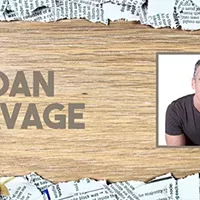
Varsity Kinks
Sep 5, 2018 -
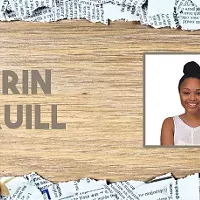
The Intersectionality and Separations of Pride Week
Aug 15, 2018 -
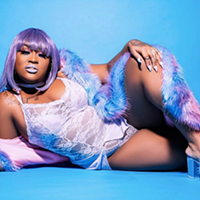
Pride Guide 2018
Aug 15, 2018 - More »
Latest in News Feature
More by Ryan Pitkin
-
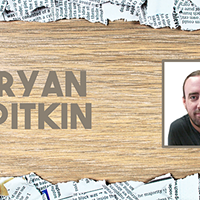
You're the Best... of Charlotte
Oct 27, 2018 -
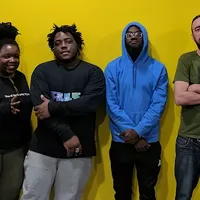
Listen Up: Cuzo Key and FLLS Go 'Universal' on 'Local Vibes'
Oct 25, 2018 -
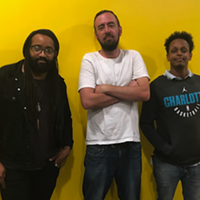
Listen Up: KANG is Back and Bla/Alt on 'Local Vibes'
Oct 18, 2018 - More »
Calendar
-
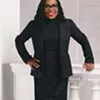 An Evening with Justice Ketanji Brown Jackson @ The Carolina
An Evening with Justice Ketanji Brown Jackson @ The Carolina -
 Jim Norton @ The Underground
Jim Norton @ The Underground -

200 Hour Yoga Teacher Training in Rishikesh India @ Arogya Yoga School
-

Sound Healing Course in Rishikesh
-
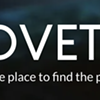
Coveted Luxury Watches

